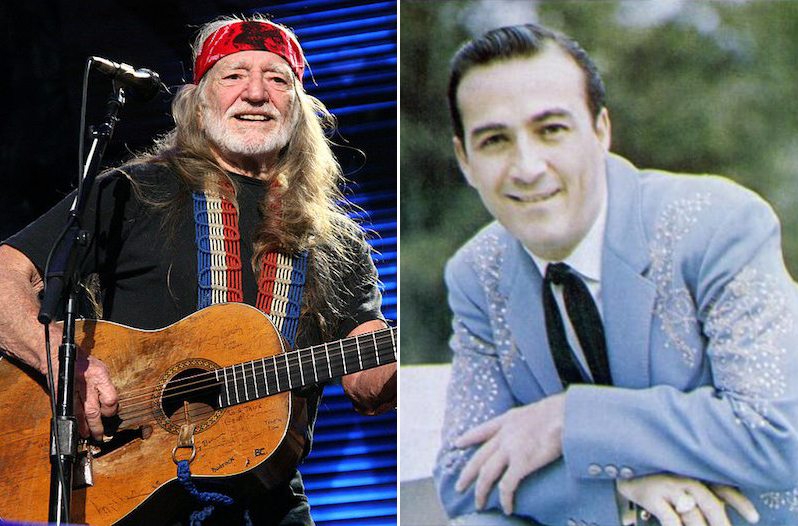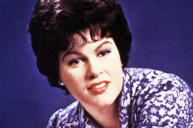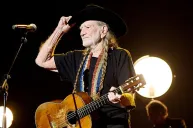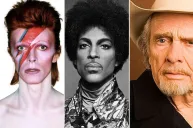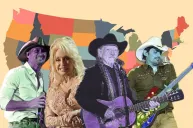Without a great writer and singer, a country song about a man wore down by his live fast, love hard lifestyle that he's commiserating with a wall would've come across as a parody. Fortunately, the ageless Willie Nelson wrote "Hello Walls" as a struggling young songwriter.
By March 1961, the public learned about Nelson's talents when country hit-maker and Hollywood heart-throb Faron Young proved to have the right voice to capture the agony of Nelson's beaten-down protagonist.
The Singing Sheriff Rides Again
Billed as the "Young sheriff" for his roles in Western films, Young appeared in multiple films during the 1950s, including Hidden Guns, Daniel Boone, Raiders of Old California and Country Music Holiday. After seeing Hank Williams perform on Louisiana Hayride, Young fell in love with country music.
His hit songs "Live Fast, Love Hard, Die Young," "If You Ain't Lovin' (You Ain't Livin')" and "It's Four in the Morning" made Young a star. But it all started with the Shreveport, La. native's 1952 song, "Goin' Steady." After getting drafted in the army, the song hit No. 2 on the country charts while Young was in basic training. The singer recorded for Capitol Records from 1954-1962, including a version of Don Gibson's "Sweet Dreams."
But his best-known song was "Hello Walls." Young and his producers, Ken Nelson and Marvin Hughes, formulated an approach to melodies and lyrics that screams loneliness and despair. En route to a country chart-topper and his lone Top 40 pop hit in the United States, Young sang stretches of the song in such a way that he's practically having a subdued, one-way conversation. His delivery suited the source material.
A Financial and Artistic Breakthrough For Nelson
Just as such beloved traditionalists as Jamey Johnson and Chris Stapleton wrote popular songs before gaining solo traction, Nelson, Bill Anderson, Kris Kristofferson and others to emerge in the 1960s made a living off songwriting before becoming household names. Per most accounts, Nelson was once a proverbial starving artist, selling off songs during barroom discussions with Nashville's movers and shakers. He even tried to sell "Hello Walls" to Young for $500, not knowing the artist had cut a version that'd soon top the charts for nine weeks.
His talent probably would've risen to the top regardless. But it's hard not to think that the reported $20,000 royalty check — worth over $150,000 in this day and age — from Young's No. 1 hit might've kept Nelson in the game long enough to retire from RCA a decade later, return home to Texas and help lead an outlaw revolution.
In 1962, Nelson's original recording of "Hello Walls" appeared on his debut album ... And Then I Wrote. The album revealed Nelson as the mind behind several big stars' hits, namely Patsy Cline's "Crazy."
A Parody Song Waiting To Happen
As stated before, this concept needed the right singer to work. A couple of jokesters knew they weren't up to the task, so they struck while the song was still popular with parody versions. First came future television host and country music personality Ralph Emery, voicing the wall on the jovial answer song "Hello Fool." It became Emery's lone Top 5 hit. Sheb Wooley's Ben Colder character stumbled through "Hello Wall #2" a year later, reminding listeners that it takes talent to purposely sound obnoxious.
When musicians from other genres covered classic country music, "Hello Walls" suited crooners and soul singers. Artists not primarily known as country singers to cut a version include Esther Williams, Brook Benton and Bing Crosby. For crossover Decca Records album Bright Lights & Country Music, Ricky Nelson cut a fantastic version of his own.
Country artists and country-influenced acts would go on to associate the song with Nelson's early years. For instance, Reverend Horton Heat covered it for 1996's Nelson tribute album Twisted Willie.
Today, the song is as much a country classic as most anything by Johnny Cash or Marty Robbins. That's due mostly to Nelson's ongoing legacy, but don't sleep on Young's role as an ideal singer to introduce "Hello Walls" to the masses.
Young was inducted into the Country Music Hall of Fame in 2000. Following the success of "Hello Walls," he briefly spent time recording with Mercury Records and MCA Records, but eventually, he drifted out of the spotlight. Outside of music and acting, he invested in real estate along Nashville's Music Row and, in 1963, co-founded the trade magazine, Music City News.
This post was originally published on May 2, 2018.
